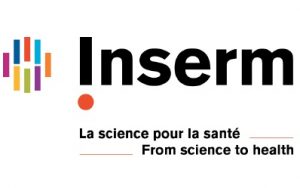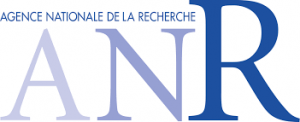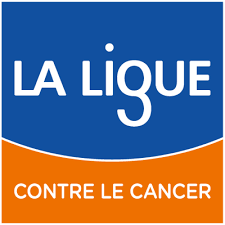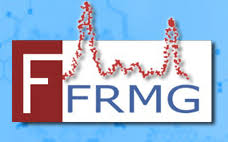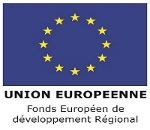CRIBL – Control of the B Cell Immune Response and Lymphoproliferations
UMR CNRS 7276 - UMR Inserm 1262
Presentation
Contact: Eric PINAUD – Director
Tel. : + 33 (0)5 19 56 42 05
Adress : Faculté de Médecine Centre de Biologie et de Recherche en Santé (CBRS) – 2 rue du Dr Marcland – 87025 LIMOGES CEDEX
Administrative Supervision : University of Limoges – CNRS – Inserm
Parent Institute : GEIST
Doctoral School : ED 615 -Biological Sciences and Health (SBS)
> WEBSITE
Key figures (30/06/2017)
Accreditated to direct research (HDR): 8
Engineers, Technicians, Administratif staff: 18
Doctoral Students: 17
70 people present
Scientific Publication
Research
The scientific projects of the team are developed hand in-hand with national and international institutions (in particular with the Cancéropôle Grand Sud-Ouest (Greater South-West Cancer Centre and European networks).
The team implements cutting-edge molecular and cell biology methods (in particular transgenesis and homologous recombination) for three types of research objectives :
- Fundamental: molecular mechanisms that regulate antibody production / study of genetic remodeling associated with the differentiation and maturation of immune cells and more specifically B lymphocytes / biology of B lymphomagenesis B and tumour transformation /physiology of the normal B lymphocyte, etc.
- Experimental medicine issues: development of mechanistic models for studying immunopathological or onco-hematological disorders / participation in clinical research / involvement with the National Reference Centre on amyloidosis and immunoglobulin deposition diseases / implementation of new diagnostic tools for lymphomas;
- Therapeutic applications: approaches that are specifically related to improving the diagnosis and treatment of oncological (in particular hematological) and dysimmune pathologies / technological developments that focus on flow cytometry methods. This array of theme variations, which focuses mainly on the B lymphocyte, provides mutual benefit in the different research areas. Studying pathological mechanisms and possible therapeutic applications simultaneously promotes fundamental research and can occasionally guide it. The location within the medical cluster privileges interactions and complementarity between fundamental and clinical research.
Research Themes: Physiology and Genetics of B lymphocytes ; Lymphomagenesis Mechanissm ; Immunoglobulin Deposition Diseases ; Therapeutic Antibodies
Keywords: Molecular Biology ; Cell Biology ; Genome ; Genetics ; Transgenesis ; Oncogenesis ; Hematology ; Immunology ; Animal Models ; Lymphoproliferations
Equipment/Technical resources
Equipment : SOPF transgenesis and access to BISCEm core facilities
Technical expertise : development of new murine models (ES cells, KI/KO, CRISPR/CAs9) transgenesis, microinjection, confocal microscopy, 3D fluorescence microscopy, flow cytometry, 3D flow imager/cytometry, NGS technology and bio-informatic analyses, preclinical studies (immunotherapy, radio-immunotherapy and onco-hematology), antibody engineering, classical fields of molecular and cellular biology
Technical Platform
BISCEm (Research Facility for Integrative Biology, Health, Chemistry and Environment): Animal facility SOPF and conventional, histology, fluorescent microscopy, flow cytometry and flow imager, genomics, mass spectrometry, NMR, bioinformatics
Services provided
Immunology and hematology expertises Research and development in immunology and onco-hematology
Scientific valorization
Fields of application: health, biotechnology, immunology and onco-hematology
Industrial application: Identify new therapeutic approaches for lymphoproliferation and in Ig-deposition disease treatments ; Design associated in vitro and in vivo experimental models ; Preclinical studies in immunotherapy and radioimmunotherapy
Chair of Excellence: Immuno-pathologie des maladies rénales
Enterprise created since 2005: B-Cell Design
Cluster: Cancer Bio Santé
Partnerships
- National university partnerships: UMR 8126-CNRS IGR Villejuif / INSERM Montpellier (B. Klein) /INSERM U563, Purpan, Toulouse (P. Brousset) / Inserm Bichat, Paris (R. Monteiro) / IGBMC Strasbourg (B. Reina-San-Martin) / INSERM Paris Diderot (C. Francastel) / INSERM Pitié-Salpêtrière Paris (F. Davi) / UMR CNRS 5248 – Université de Bordeaux (Pr. J.-M. Schmitt) / GIMAP, Université de Saint-Etienne (Dr. N. Maillard, Pr. C. Mariat, Pr. S. Paul) / UMR Inserm 1152 – Université Paris Diderot (Dr. S. Létuvé) / UMR CNRS 7252 – Université de Limoges (Dr. F. Louradour) / U1236 INSERM / Université de Rennes MICMAC Cell differentiation, iMmunology And Cancer (Pr K. Tarte) / Institut de Génétique Humaine – UMR 9002 CNRS – Université de Montpellier (Dr J. Moreaux) / UMR INSERM U996, Clamart, Paris Sud (Karl Balabanian et Marion Espeli)
- International university partnerships: Pr. F.W. Alt (Boston) / Dr. B. Cortesy (Lausanne) / Dr. A. Kenter (Chicago) / Pr. G. Bornkamm (Munich) / Dr. O. Dewuyst, (Bruxelles) / Dr. M. Van Egmond (Amsterdam) CNB-CSIC Madrid Spain / Dr. C. van Kooten (Leiden University Medical Center, Pays-Bas) / Dr. F.-E. Johansen (University of Oslo, Norvège) / Ursula Zimber-Ströbl (Munich, Allemagne
- National industrial partnerships: CAYLA-Invivogen (Toulouse,-San Diego) /LFB (Lille) /) / Dendritics (Lyon) / B Cell Design (Limoges)
- International Industrial Partnerships: Beckman-Coulter, Fullerton, USA, Amnis corporation, (Seattle, USA) / OranoMed (Bessines – La Défense)



